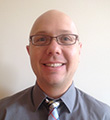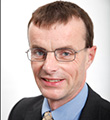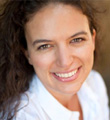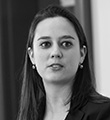15 January 2014 to 22 January 2014
View Webinar Content
15 January Session
Presentation—Introduction to the webinar and panelists
Presentation—SEAD Global Efficiency Medal Competition for Electric Motors
Transcript—Webinar audio transcript
View Webinar Content
22 January Session
Transcript—Webinar audio transcript
The Clean Energy Solutions Center, in partnership with the Clean Energy Ministerial’s Super-efficient Equipment and Appliance Deployment (SEAD) Initiative, hosted two webinars on the fourth SEAD Global Efficiency Medal competition for electric motors. The SEAD award for electric motors seeks to advance energy efficiency by:
- Recognizing products with the best energy efficiency
- Guiding buyers who want to purchase the most energy-efficient products
- Demonstrating achievable levels of efficiency with commercially available and emerging technologies.
Global awards will be given to motors demonstrating the greatest energy efficiency in three categories: 4-kW and 11-kW International Electrotechnical Commission (IEC) induction motor and <75-kW new technology motor. Awards will also be given across four geographic regions: Australia, Europe, India, and North America (a region that also includes awards for National Electrical Manufacturers Association, or NEMA, motors). By recognizing both induction and new technology electric motors, the competition aims to accelerate efficiency gains in existing technologies and promote emerging technologies in the market.
This global competition for electric motors is open for entries from all electric motor manufacturers through 31 January 2014, and entries will not be publicized. The winners will be announced in September 2014.
In this webinar, SEAD Awards Working Group Chair Chad Gallinat briefly introduced the SEAD Global Efficiency Medal competition to provide context for the electric motor competition within the SEAD Initiative. Hugh Falkner then discussed the SEAD motor competition rules in detail.
Panelists
 Chad Gallinat
Chad Gallinat
Chad Gallinat chairs the SEAD Awards Working Group. Dr. Gallinat joined DOE in 2013 as a Science and Technology Policy Fellow for the American Association for the Advancement of Science (AAAS). He is an accomplished materials scientist where his research made significant impact in the advancement of semiconductor technologies relevant to a host of light-absorbing and light-emitting applications including LEDs for solid-state lighting. Prior to joining DOE, he worked in both the private sector and at a national laboratory on research initiatives with importance to both consumer goods and national security. Chad received a doctorate in Materials Engineering from the University of California at Santa Barbara for his work fabricating a technologically important light-emitting semiconductor material.
 Hugh Falkner
Hugh Falkner
Dr. Hugh Falkner is a Chartered Electrical Engineer with 20 years international experience in various technical and managerial roles in energy efficiency and renewable energy consultancy. During his 7years in industry, he designed transformers ranging from <1W Switched mode types to >50kVA welding transformers, many still in production. He is an international expert on energy efficiency of rotating machinery (motors, pumps, fans, compressed air) and has extensive international experience of motor system energy saving audits and training (including Brazil, China, Russia, South Africa, Thailand, and the EU).
 Mia Forbes Pirie
Mia Forbes Pirie
Mia is an accredited mediator and facilitator, skilled at facilitating policy processes and experienced in negotiation and supporting dialogue with a wide range of parties. She has worked on two of the world's leading Appliance Standards programs: the US Appliance Standards Program (Lawrence Berkeley National Laboratory) and the UK Market Transformation Programme (the leading program in Europe). At Lawrence Berkeley National Laboratory she led on TVs and Ceiling Fans and Ceiling Fan Light Kits, as well as helping to build LBNL's Appliance Standards electronics capacity, specialization and reputation. On the UK Market Transformation Programme, she led on impact assessments, household appliances; and consumer electronics (CE) and information and communication technologies (ICT). She also played a key role in the UK's Government Standards and Carbon Budgets analysis, which sets the framework for government policy on Energy-related products for the coming years. As an independent consultant, Mia provided advice to industry affiliations such as the Energy Efficiency Industrial Forum (EEIF) and the European Alliance of Companies for Energy Efficiency in Buildings (EuroACE) as well as organisations including the United Nations and the European Commission. Previously, Mia practised law for more than seven years in the London office of a leading global law firm. As a regulatory lawyer, Mia implemented international compliance programs and advised many FTSE 100 corporations on some of the largest transactions in Europe. Mia holds both a Masters of Science in Environmental Technology from Imperial College London (graduated with Distinction) and a Masters in Law from the College of Europe, Bruges (graduated with Commendation.
 Debbie Karpay Weyl
Debbie Karpay Weyl
Debbie Karpay Weyl is an Associate at CLASP, providing programmatic support to the SEAD Global Efficiency Medal competition. Since joining CLASP in 2011, Debbie has participated in original technical research, dissemination and distillation of technical results for policymakers, and project management. Prior to joining CLASP, Debbie worked as a consultant to the US Department of Energy supporting energy efficiency programs in the United States. Debbie has a master's degree from the London School of Economics in environmental policy and international development.
